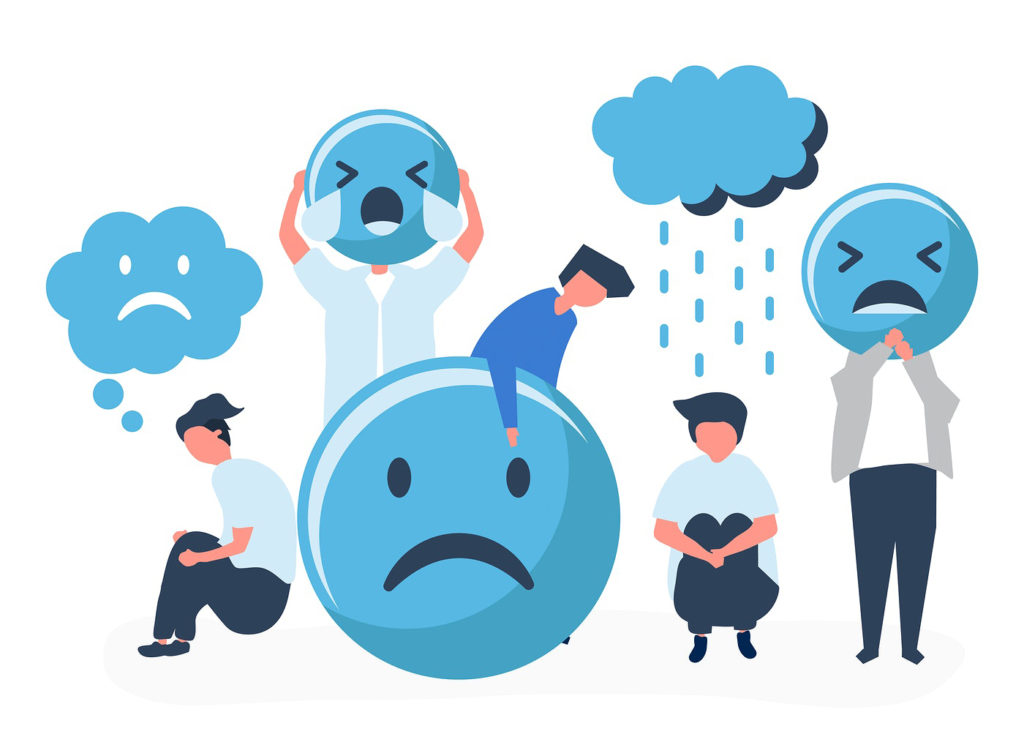With an increasing number of domestic helpers in Singapore facing mental health challenges, we look at some ways to identify and help.

A study by Channel News Asia in 2019 shows that one in five Singaporean households has a domestic helper, and the number of foreign domestic workers (FDW) is set to increase even further. Unsurprisingly, a large number of these foreign domestic workers often suffer from bouts of stress and homesickness. This could lead to worsening of their mood, health, and work performance.
I have met many domestic helpers that face many unnecessary difficulties while working here, including abuse, neglect and stress. What most employers fail to notice is that they might be unintentionally neglecting the mental health needs of their domestic helpers.
Here are some common questions about domestic workers in Singapore answered.
1. What are the legal requirements involving rest days and welfare of a domestic helper?
The Ministry of Manpower (MOM) mandates that all FDW’s are given one rest day a week. Employers have the flexibility to compensate the FDWs with extra day’s pay if the FDW agrees to work on their rest day, in case of urgent requirement
Other forms of welfare like access to a mobile phone is optional and up to the discretion of the employer. However, provision of necessities like safe, private accommodation is a must. Find out more of the MOM guidelines here.
Some employers that I’ve talked to incorrectly believe that by not allowing their helper access to telephones or rest days, they will adjust to the Singapore working environment. This could not be further from the truth. The reality is that these helpers need time to unwind. With the ability to connect with family members back home, or to explore Singapore with friends on rest days, they will be happier and feel more comfortable in the Singaporean environment.
2. What are some signs of stress/anxiety that an employer should look out for?
Nearly 25% of maids surveyed have suffered from poor mental health in Singapore. This report was by HOME, the Humanitarian Organization for Migrant Economics Singapore.
“The warning signs of potential mental health problems include sudden changes in sleeping and eating patterns, being too quiet, being socially withdrawn, excessive anger, uncontrollable crying and a sudden loss of weight,” says Sheena Kanwar, executive director of HOME, “Other more serious conditions may include high levels of anxiety, depression or psychoticism such as hallucinations, delusions, paranoia or catatonia.”
3. What causes these mental health problems?
Many foreign domestic workers are working overseas for the first time in Singapore. Due to their inexperience and potential language barriers, the unfamiliar environment of working here can lead to stress and anxiety.
Furthermore, employers might be too demanding on their helpers and give them too many tasks, being unreasonable on their expectations. Sadly, terrible working conditions that involve abusive behaviour, such as being shouted at or being subject to name-calling, increase the risk of developing irreversible mental health problems.
HOME points out that abusive, exploitative and restrictive working and living conditions are a common factor in cases of mental health issues. Employers should show adequate attention to their helpers’ nutritional, emotional and medical needs.
4. How can an employer help?
Communication is key. If you see that your domestic helper often appears tired, is moody, or shows other signs of stress, speak to them about it in a non-threatening environment.
As an employer, showing concern and care is necessary for open communication and a proper relationship. Communicate in a respectful manner to find out if you are being accommodating to your domestic helper and if they have any unmet needs. Sadly, many employers act as if they ‘own’ their helper and neglect this.
Therapy for maids is one very effective way to help improve the relationship and mental health of both the helper and their employers. Therapy helps immensely to strengthen communication. Trained therapists for domestic helpers also can bridge language barriers.
Although you cannot force your domestic helper to seek treatment, if they do agree to see a medical professional, know that the employer is responsible for expenses incurred, according to the regulations by Singapore’s Ministry of Manpower.
5. How can a foreign domestic worker seek help in Singapore?
The first avenue of support for domestic workers should be their employer. Talking to your employer is the most direct way to communicate about the problems you might face. However, if employers are verbally and emotionally abusive or controlling, helpers should look towards the agency or other organizations.
Here is a list of some organizations to visit or contact through their hotlines:
- Ministry of Manpower (MOM)
- Center for Domestic Employees (CDE)
- Foreign Domestic Worker Association for Social Support and Training (FAST)
- Humanitarian Organization for Migration Economics (HOME)
Do you know a migrant worker that is struggling under the pressure of domestic work while adjusting to a new culture, away from their families? Whether the person is an employee of your family, or someone else, smile and show some kindness! By treating migrant workers with respect, we can do our part to help him or her adjust to a life in a new environment.
Remember, you can always refer a troubled individual to a trusted psychologist in Singapore. BlankSlate Counselling is here to help anyone who is experiencing mental health difficulties. We believe that with care and trusted support, we can build a thriving population that supports mental health in Singapore.



